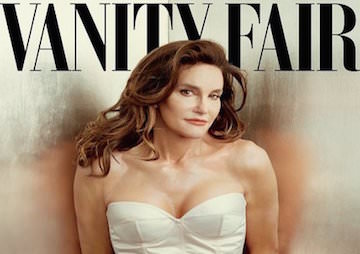While Celebrating Caitlyn, Let’s Not Overlook the Wider Realities of Trans People’s Lives
To tell Caitlyn’s story with care is to demand justice for trans people. Vanity Fair / Twitter
Vanity Fair / Twitter
Vanity Fair / Twitter
Caitlyn Jenner’s public debut is causing a media sensation for all the right reasons.
Last year, stepdaughter Kim Kardashian’s [in]famous magazine cover “broke the Internet.” But by winning over the masses, Jenner’s now ubiquitous Vanity Fair cover story, “Call Me Caitlyn,” appears to have achieved the reverse. Who would’ve guessed the exhibitionistic Kardashian-Jenner media machine could produce a watershed moment for tolerance, actually uniting the Internet?
But as a powerful ACLU blog piece reminds us, “as brave and fabulous as Caitlyn Jenner is, and she is both of those things, her story is so far from the story of most trans peoples’ lives and should not eclipse the truth of the fight for trans justice.”
The article continues:
Telling her story with care means using the right name and pronoun, but it also means highlighting the extent to which it is not the typical trans story. Her story can only be told by also telling the stories of the trans people who are struggling to survive systemic discrimination.
Health care for transgender people remains highly stigmatized and largely unavailable for the majority of trans people. Both private (i.e., employer) and public (i.e. Medicaid) insurance plans continue to have blanket bans on coverage for health care related to gender transition. Even where there has been progress on coverage generally, insurance coverage for care that trans women need is still elusive.
For example, the facial feminization surgery that Caitlyn describes in Vanity Fair is almost universally excluded from coverage. This means that most trans people, particularly trans women of color, cannot access the basic care that they need. It means that going to the doctor feels like a battle — if a trans person can get there at all. It means that trans people participate in criminalized economics like the drug and sex trades to pay for the health care they need or seek the care from friends or unsupervised black markets. It means that trans people die seeking the care they need to live.
To tell Caitlyn’s story with care is to demand justice for trans people.
We must not tell Caitlyn’s story in a vacuum that erases the history of trans organizing, mobilizing, and celebrity of the many trans women who came before her and made her Vanity Fair cover possible. Janet. Laverne. Major. Sylvia. Marsha.
We must not exclaim that Caitlyn looks “fabulous” without interrogating our standards for which trans people get to grace the covers of magazines and all the while continuing to keep the health care that brings life to trans people out of reach.
We must not celebrate Caitlyn without mourning Islan, Lamia, Penny, and the hundreds of other trans women, mostly of color, we have lost to violence. This violence isn’t just at the hands of hateful partners or strangers, but violence in the arms of hateful and exclusionary systems.
Thank you, Caitlyn, for bravely sharing your truth. May your platform shed light on these injustices and the leaders who have been fighting to make them known.
–Posted by Roisin Davis
Your support matters…Independent journalism is under threat and overshadowed by heavily funded mainstream media.
You can help level the playing field. Become a member.
Your tax-deductible contribution keeps us digging beneath the headlines to give you thought-provoking, investigative reporting and analysis that unearths what's really happening- without compromise.
Give today to support our courageous, independent journalists.






You need to be a supporter to comment.
There are currently no responses to this article.
Be the first to respond.